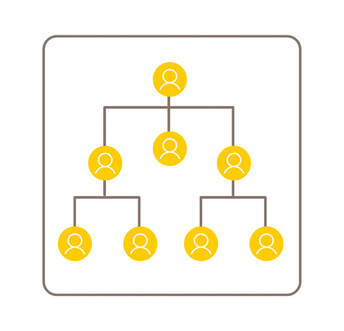|
Just as spending a day under the summer sun without proper protection can leave you with a painful sunburn, an estate plan that does not carefully consider nontraditional parent child relationships can harm you or your loved ones. The Parent-Child RelationshipAn effective estate plan will explore the parent-child relationship of everyone potentially involved. While inheritance rights may arise from the legal relationship between the parent and child, the scope, size and shape of any inheritance will depend on whether the deceased person completed any actions to create an estate plan. If no such plan exists or is invalid, then a child’s inheritance (or even a parent’s inheritance from a deceased child) will depend on the applicable laws prescribing a “one-size fits all” estate plan known as intestacy law. Intestacy laws determine who is entitled to inherit and how much the person in entitled to inherit. A few of the immediate questions to explore are:
When it comes to a child's legal ability to inherit from parents, adopted children and biological children are considered equal in the eyes of the law. However, situations involving stepchildren or presumed child can be more complicated. StepchildA stepchild is a child of one’s spouse or civil partner, but not one's own offspring, either biologically or through adoption. Unless the child is legally adopted, a stepchild has no legal right to expect an inheritance from a stepparent. The stepparent can however choose to provide for the stepchild in his or her estate plan. In that case, the stepchild would inherit from the stepparent in the same manner as any other beneficiary would inherit from the stepparent. Presumed Child In some cases, a person may be considered a presumed child, which means a court recognizes the person as the child of the deceased, even if the person was not adopted. Legal recognition for presumed children is based on public policy that certain individuals should be treated as parents because of their relationship with a child and the role they assume in that child's life. The criteria for being a presumed parent can vary by jurisdiction, but they often include the following:
District of Columbia - Decedent's Child and Heir in EquityIn 2019, the DC Court of Appeals clarified, that the District of Columbia could recognize presumed children for intestacy purposes. The court held: if an individual seeks to establish that he is an intestate decedent's child and heir as a matter of equity, he must prove that the decedent objectively and subjectively stood in the shoes of his parent. In Re: Estate of Rosa North Ford, 200 A.3d 1207, 1215 (D.C. 2019). According to the Court, any person claiming to be the child of a deceased person and an heir as a matter of equity, “the putative child must prove that, as a minor, the decedent gave him a permanent home.” The Court further instructed that the probate court should consider the following questions:
Specific Gifts to Descendants or Do the Gifts Lapse? Parent and child relationship can be even more problematic when an estate plan makes specific gifts to friends and individuals who are not well known. These beneficiaries entitled to specific gifts are usually not the same as the residuary beneficiaries. When a beneficiary to specific gift predeceases the testator, the administrator of the estate plan must consider whether the gift will lapse or will the specific gift go onto the descendants of the predeceased beneficiary. This distinction will have significant consequences – if the gift lapses, then the gift will remain part of the estate and will be distributed to the residuary beneficiaries. If the gift goes onto the descendants of the predeceased beneficiary, then the residuary beneficiaries will not receive that potion of the estate constituting the gift. Therefore, the administrator of the estate plan must inquire into whether the beneficiary had children, biological, adopted or even presumed children in order to determine whether the gift can still be made. In the absence of perfect knowledge then the default rule should be that such gifts will lapse. ConclusionThe relationship between a parent and child can take many forms. It is therefore important that you discuss with your estate planning and financial advisors the need to have an estate plan that clearly identifies your intended beneficiaries and the legal relationship of those beneficiaries to you. Your discussion should also examine relationships with any individuals who may not be immediate or obvious family members. With a well thought-out, comprehensive estate plan, you can rest assured that your wishes regarding inheritance will be clear and properly documented so they can be legally enforced.
Comments are closed.
|
Archives
April 2024
|
Services |
Company |
|



 RSS Feed
RSS Feed